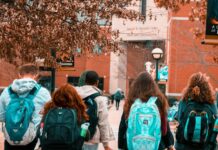Johannesburg, September 2025 | Rhino horns are far more than a symbol or a commodity, they are essential biological tools that play a critical role in a rhino’s survival. This World Rhino Day, celebrated on 22 September, the Bothongo Rhino & Lion Nature Reserve is taking the opportunity to educate the public about this essential aspect of rhino biology. In doing so, it hopes to help people understand why conservation efforts must focus on more than just preventing the physical loss of these iconic animals.

Made of keratin, the same protein found in human hair and nails, these horns are incredibly versatile. Rhinos use them to dig for water during dry periods, strip bark from trees, break branches to reach foliage, defend themselves from predators, and establish dominance and social hierarchies within their groups. Each horn is uniquely adapted to the rhino’s lifestyle. It allows the animal to navigate and interact with its environment effectively. The illegal removal of horns through poaching not only threatens the species’ survival but also disrupts the animal’s ability to perform everyday functions that are crucial to its health and social wellbeing.
“People often think the horn is just a trophy or a commodity, but for rhinos, it is a vital tool for survival,” says Didi Mahlo, field ranger at Bothongo Rhino & Lion Nature Reserve. “Without their horns, rhinos cannot access certain foods, defend themselves, or interact properly with other rhinos. Every horn removed illegally puts the animal’s health and social life at risk.”
Didi continues “The horn is central to a rhino’s day-to-day life in the wild. It’s used for foraging, digging for water, and even play between young rhinos. Educating the public about this is critical. When people understand the horn’s real value, it strengthens the case for conservation.”
Bothongo Rhino & Lion Nature Reserve has long championed rhino protection, combining anti-poaching measures with educational initiatives that teach visitors about the species’ biology, behaviour, and the challenges rhinos face in the wild. Through guided tours and interactive experiences, the Reserve aims to inspire people to appreciate rhinos as more than just iconic creatures, but as animals whose survival depends on the protection of every part of their biology.
“As we mark World Rhino Day, we hope to remind everyone that conservation is about protecting life, not just objects,” adds Mahlo. “Rhinos are part of an ecosystem, and every horn plays a role in that delicate balance. Saving rhinos means saving the natural systems they rely on, and the wildlife communities that surround them.”
For more information, visit https://www.rhinolion.co.za/ or the Bothongo Rhino & Lion Nature Reserve’s Facebook or Instagram pages.






































